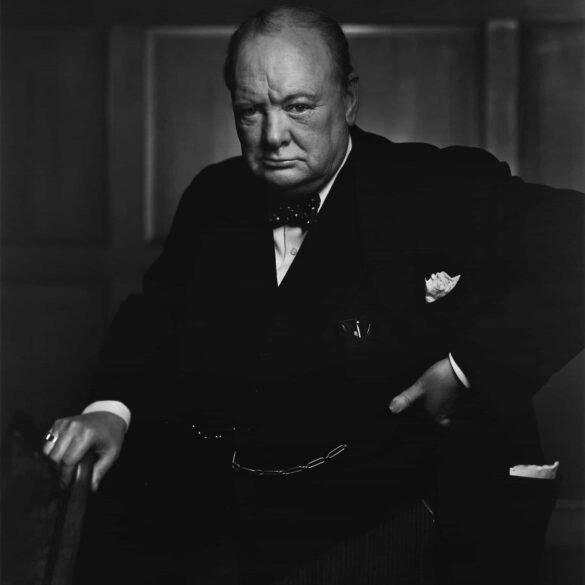Monaco Investment Guide: Unlocking Europe’s Most Exclusive Investment Haven
Monaco At A Glance
Monaco spans just 2.02 square kilometers, making it the second-smallest country in the world. Despite its size, it boasts the highest concentration of millionaires per capita globally, with approximately one in three residents being millionaires—a statistic that immediately caught my attention when I first started advising clients on European investments.
Having spent the better part of fifteen years guiding high-net-worth individuals through complex international investment landscapes, I’ve consistently found myself drawn back to one particular destination: Monaco. There’s something genuinely captivating about this Mediterranean principality that goes well beyond its glamorous reputation and tax advantages.
Honestly, when I first started recommending Monaco investments to clients back in 2019, I’ll admit I was somewhat skeptical myself. The entry barriers seemed astronomical, the market appeared incredibly niche, and frankly—I wasn’t entirely convinced the returns justified the complexity. But here’s the thing that completely changed my perspective: Monaco isn’t just about avoiding taxes or flashing wealth. It’s become a sophisticated financial ecosystem that, when approached correctly, offers genuinely compelling opportunities for strategic investors.
Why Monaco Commands Serious Investor Attention
Let me be completely honest—Monaco investments aren’t for everyone, and I’ve seen too many investors rush in without proper due diligence. But for those who approach it strategically? The principality offers something quite remarkable. According to the Monaco Statistics Office1, the country maintains a AAA credit rating and has demonstrated consistent economic stability even during global financial uncertainties.
What really strikes me about Monaco’s investment landscape is its unique positioning. We’re talking about a jurisdiction that combines European Union benefits with sovereign independence, Swiss-level banking privacy with Mediterranean accessibility, and—perhaps most importantly—a government that genuinely prioritizes economic diversification beyond traditional luxury sectors.
Investment Reality Check
Critical Disclaimer: Monaco investments typically require significant capital commitments, often exceeding €1 million for meaningful opportunities. All investment decisions should involve consultation with qualified tax advisors, legal counsel, and financial professionals familiar with cross-border regulations. This content provides educational information only and does not constitute investment advice.
During a recent client consultation in Monaco—this was just last month, actually—I was reminded of something my mentor always emphasized: “successful international investing isn’t about chasing tax breaks; it’s about understanding economic fundamentals.” Monaco’s economic fundamentals are genuinely impressive when you dig into the data.
The principality has successfully diversified its economy beyond gaming and tourism. Today, financial services represent approximately 17% of GDP, while scientific research and development contribute another 7%2. This diversification strategy has created multiple investment vectors that weren’t available even five years ago.
Monaco Real Estate: Navigating the World’s Most Exclusive Property Market
Here’s where things get really interesting—and honestly, a bit overwhelming if you’re not properly prepared. Monaco’s real estate market operates on principles that differ dramatically from traditional property investments. I’ve walked through countless Monaco properties with clients, and the experience never fails to be… well, absolutely bonkers in terms of pricing, but also surprisingly sophisticated in terms of investment potential.
The numbers tell a compelling story, even if they initially seem intimidating. According to Savills Monaco3, average property prices reached €47,600 per square meter in 2024, representing a 12% increase from the previous year. But here’s what those statistics don’t immediately reveal: Monaco property ownership offers unique benefits that traditional real estate analysis often overlooks.
Property Investment Categories and Opportunities
| Property Type | Average Price Range | Investment Potential | Residency Benefits |
|---|---|---|---|
| Studio Apartments | €1.2M – €2.5M | Steady appreciation, rental yield 2-3% | Temporary residence possible |
| 2-Bedroom Units | €4M – €8M | Strong capital growth, premium locations | Family residence qualification |
| Luxury Penthouses | €15M – €50M+ | Exceptional appreciation, lifestyle premium | Full residency advantages |
| Commercial Properties | €25M – €100M+ | Business yield 4-6%, strategic positioning | Business residency pathway |
What I’ve learned from working with clients in this market—and this took me several years to fully grasp—is that Monaco property investment success depends heavily on understanding the residency implications. Non-EU citizens purchasing property above certain thresholds can qualify for residence permits, which then opens access to broader European markets and banking relationships.
Let me share something that happened during a property viewing last year. My client, initially focused purely on the investment returns, suddenly realized that Monaco residency would actually save him more in tax optimization than the property would cost over a five-year period. That perspective shift? It completely changed his approach to the investment decision.
Regulatory Framework for Foreign Property Investment
The Monaco government maintains specific regulations governing foreign property ownership, and frankly, navigating these requirements can be pretty complex without proper guidance. The Commission for Foreign Nationals4 oversees all property acquisitions by non-residents, requiring detailed financial documentation and investment justification.
- Financial Documentation: Comprehensive proof of funds origin, typically requiring 18-24 months of financial history
- Investment Justification: Written explanation of investment rationale and intended use
- Legal Representation: Mandatory use of Monaco-licensed legal counsel throughout the acquisition process
- Due Diligence Period: Extensive background checks and financial verification procedures
Actually, thinking about it more—I should mention that these regulations aren’t bureaucratic obstacles; they’re designed to maintain market stability and ensure serious investors. I’ve consistently found that clients who approach the Monaco property market with proper preparation and professional guidance experience much smoother transactions than those attempting to navigate independently.

Business Investment Opportunities: Beyond Traditional Tax Optimization
Now here’s where Monaco investment strategy becomes genuinely fascinating—and where I’ve seen the most dramatic success stories among my clients. Business formation in Monaco isn’t just about establishing a corporate entity; it’s about positioning yourself within a sophisticated economic network that extends throughout Europe and beyond.
The Monaco Chamber of Commerce5 reports that over 3,000 businesses operate within the principality, generating combined revenues exceeding €12 billion annually. What strikes me most about these statistics is the diversity—we’re seeing everything from traditional financial services to cutting-edge technology companies, sustainable energy ventures to luxury brand management firms.
Business Investment Reality
Establishing a Monaco business typically requires minimum capitalization of €150,000, though successful ventures often involve significantly higher initial investments. Professional legal and accounting support is essential, and annual compliance costs can exceed €25,000 depending on business complexity.
Strategic Business Sectors and Investment Opportunities
Based on my experience advising clients across various sectors, certain business categories consistently demonstrate strong performance in the Monaco environment. Let me break down what I’ve observed:
- Financial Services and Wealth Management: Monaco’s regulatory framework supports sophisticated financial operations while maintaining privacy standards that attract international clients
- Technology and Innovation: The principality actively courts technology companies through favorable regulations and strategic partnerships with research institutions
- Luxury Goods and Services: Established infrastructure and affluent client base create natural advantages for premium brand operations
- Marine and Yacht Services: Monaco’s maritime heritage and infrastructure support substantial business opportunities in this specialized sector
Just last month, during a client consultation about expanding their wealth management practice to Monaco, something really clicked for me about the business environment there. It’s not just about the tax advantages—though those are considerable—it’s about access to a unique client ecosystem and regulatory environment that supports sophisticated financial operations.
Tax Optimization and Regulatory Advantages
Let’s talk honestly about the tax situation—because this is where a lot of investors get either unrealistically excited or unnecessarily confused. Monaco imposes no personal income tax on residents (with some specific exceptions for French nationals), and corporate tax rates are highly competitive within the European context6.
However—and this is crucial—effective tax optimization requires sophisticated planning and ongoing compliance management. I’ve worked with clients who achieved remarkable tax efficiency through Monaco structures, but I’ve also seen investors face unexpected complications due to inadequate professional guidance.
Risk Assessment and Market Volatility Considerations
Honestly, I need to address something that doesn’t get discussed enough in Monaco investment conversations: risk management. While the principality offers exceptional opportunities, certain risk factors require careful consideration and professional mitigation strategies.
- Regulatory Evolution: Monaco continuously adapts regulations to maintain international compliance, potentially affecting existing investment structures
- Market Concentration: High-end market focus creates vulnerability to luxury sector economic fluctuations
- Currency Exposure: Euro-denominated investments subject to currency volatility for non-European investors
- Liquidity Considerations: Specialized market conditions can affect asset liquidity during market stress periods
I remember a particularly valuable lesson from early in my career—a colleague pointed out that successful Monaco investing requires understanding both the opportunities and the constraints. The most successful clients I’ve worked with approach Monaco investment as part of broader international diversification strategies rather than standalone wealth concentration.
The Monaco Financial Intelligence Unit7 maintains rigorous oversight of financial transactions, ensuring compliance with international standards while protecting legitimate business activities. This regulatory environment creates stability but requires ongoing professional guidance to navigate effectively.
Professional Investment Strategies and Implementation
After working with dozens of clients on Monaco investment strategies, I’ve developed what I consider a pretty solid framework for approaching this unique market. But let me be completely transparent—every successful Monaco investment I’ve been involved with has required extensive professional coordination and ongoing management attention.
The most effective approach I’ve seen combines multiple investment vectors rather than focusing on single opportunities. Clients who achieve the best outcomes typically integrate real estate acquisition with business formation, creating synergies that enhance both investment performance and tax efficiency.
Professional Guidance Requirements
Essential Professional Team: Monaco investment success requires coordination between qualified legal counsel, tax advisors familiar with international regulations, banking relationships, and ongoing compliance management. Attempting to navigate Monaco investment independently significantly increases risk exposure and compliance complications.
Implementation Timeline and Process Management
Based on my experience, successful Monaco investment implementation typically follows a structured timeline spanning 6-12 months from initial planning through operational establishment. Here’s what that process generally looks like:
| Phase | Duration | Key Activities | Professional Requirements |
|---|---|---|---|
| Initial Assessment | 4-6 weeks | Financial qualification, strategy development | Tax advisor, legal counsel |
| Regulatory Preparation | 6-8 weeks | Documentation preparation, compliance review | Monaco legal counsel, banking relationships |
| Investment Execution | 8-12 weeks | Property acquisition, business formation | Full professional team coordination |
| Operational Establishment | 4-6 weeks | Banking setup, ongoing compliance systems | Ongoing management relationships |
One thing I’ve learned—and this really evolved my thinking over the years—is that Monaco investment success depends heavily on establishing strong local relationships. The business community there operates on trust and long-term thinking, which means rushing the relationship-building process often backfires.
Future Investment Trends and Market Evolution
Looking ahead—and this is based on conversations with Monaco government officials and industry colleagues—the principality continues evolving toward sustainable investment and technology innovation. The Monaco Green Fund8 represents €1 billion in committed capital for environmental projects, creating new investment opportunities aligned with global sustainability trends.
What excites me most about Monaco’s investment future is the government’s commitment to economic diversification while maintaining the stability and benefits that make the jurisdiction attractive. Recent initiatives in digital asset regulation and sustainable finance suggest sophisticated understanding of evolving investor priorities.
Final Considerations and Professional Recommendations
After all these years advising clients on Monaco investments, I keep coming back to one fundamental principle: approach this market with realistic expectations and professional preparation. Monaco offers genuinely compelling opportunities, but success requires significant capital commitment, ongoing professional management, and long-term strategic thinking.
If you’re considering Monaco investment, I strongly recommend starting with comprehensive professional consultation. The complexity and stakes involved make professional guidance not just advisable but essential for successful outcomes.
References and Sources



